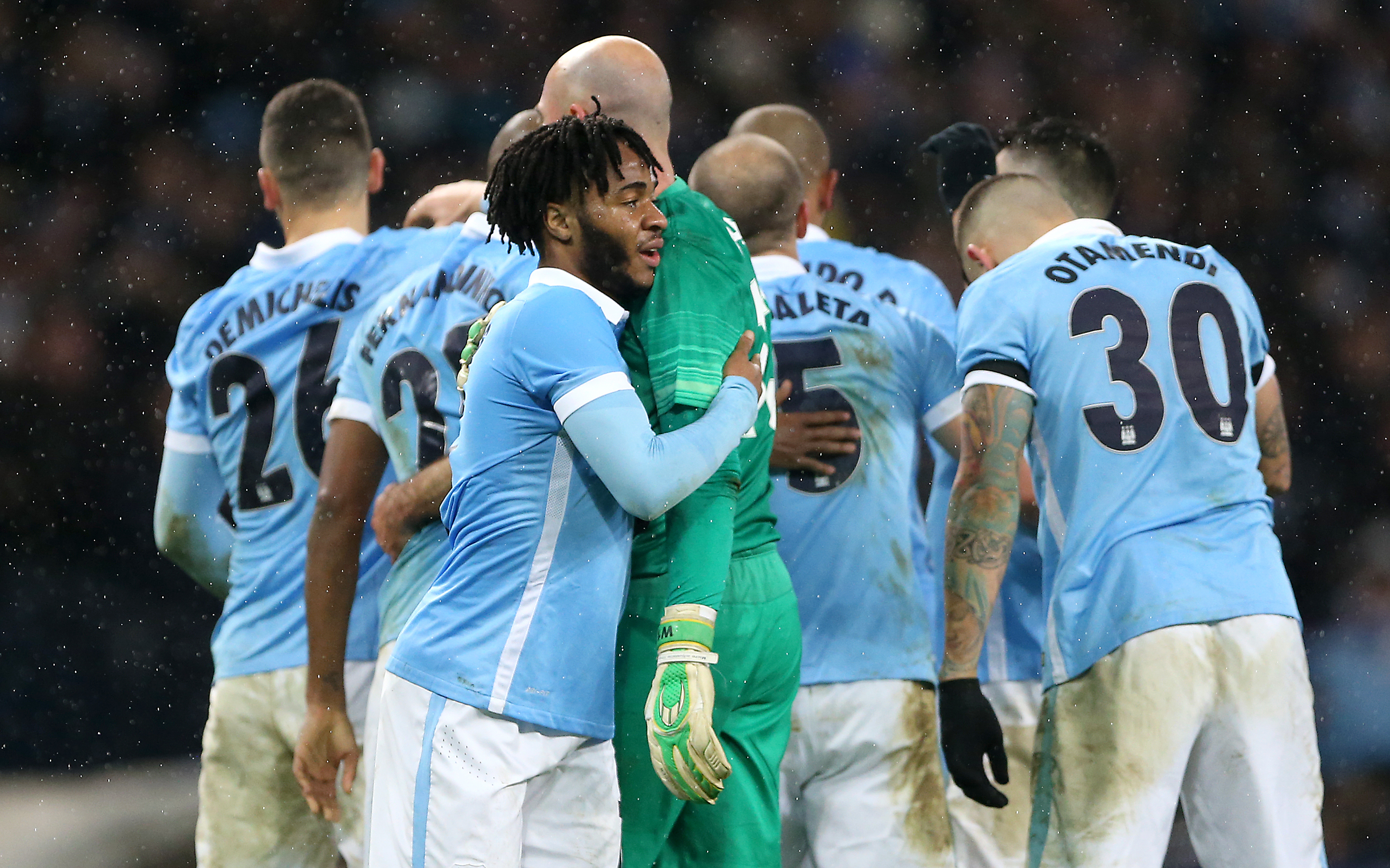
Without some luckless referee getting it totally wrong, there would be no “Hand of God”, for example.
More recently, had Thierry Henry’s blatant handball been spotted, France wouldn’t have beaten Ireland to the 2010 World Cup Finals.
And, of course, had that Azerbaijani linesman done his job at Wembley in 1966 and ruled out Geoff Hurst’s second goal, England may never have won the World Cup!
Watching Manchester City’s League Cup semi-final victory over Everton last week – and specifically the part Raheem Sterling played in it – brought all of those incidents rushing back to my mind.
City star Kevin De Bruyne’s vital goal against the Toffees should never have stood because the ball was out of play before Sterling cut it back for him. That much is obvious.
So I can completely understand the subsequent clamour for introducing more technology to help referees get these decisions correct.
If we can tell refs whether or not the ball has crossed the line when a goal is at stake, there is no reason we cannot do the same when the ball has gone out of the park.
I had former referee Keith Hackett on my radio show last week, and he made some very interesting points.
There are as many as 32 TV cameras at big games these days, all of which offer slow-motion replays from different angles.
A referee doesn’t have the benefit of that in the middle of a game. He’s got enough on his plate just trying to keep his eye on the ball!
And with the best will in the world, do we really accept officials are able to keep pace with guys like Raheem Sterling in full flight?
Even the men in the middle are willing to accept any help they are offered, and given what’s at stake for them, I’m not surprised.
Their opinions should be listened to. After all, they are the ones doing the job.
But while I’m a fan of helping hard-pressed referees and linesmen out, I think we also have to be careful to not to remove the element of human error from the game altogether. For big decisions like goals and red cards, officials should be given all the help we can give them.
We wouldn’t be making mugs of them by doing that, we would just be giving them better tools with which to do their jobs.
Nevertheless, it’s important that football retains the sort of random factor that has kept us all talking over the years. Football fans love a bit of drama – and I’m no different.
We should be helping referees out, but not at the expense of allowing them to interpret the vast majority of incidents the way they see fit.
A balance needs to be struck, but I believe it’s something that can be done with proper planning and implementation.
What football needs is to get things right without doing wrong to what makes it such an exciting game in the first place.
That’s why the time is right to help referees get the big calls correct with the aid of technology.
And even though it’s too late to do anything about 1966, it’s a case of better late than never!

Enjoy the convenience of having The Sunday Post delivered as a digital ePaper straight to your smartphone, tablet or computer.
Subscribe for only £5.49 a month and enjoy all the benefits of the printed paper as a digital replica.
Subscribe